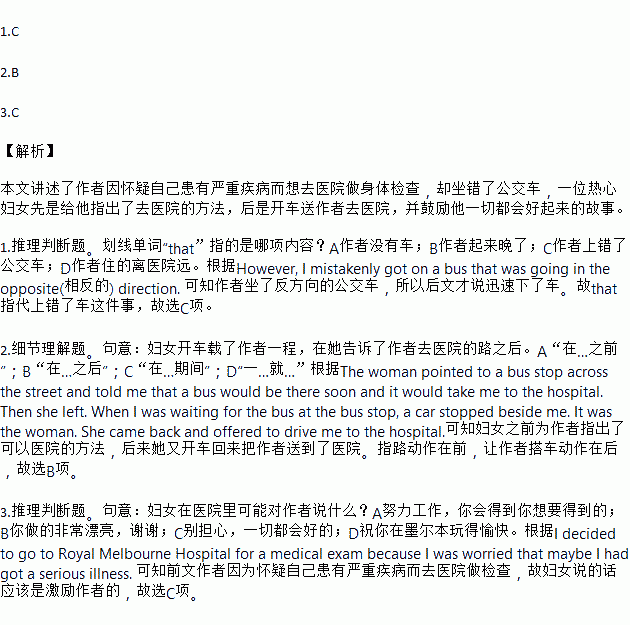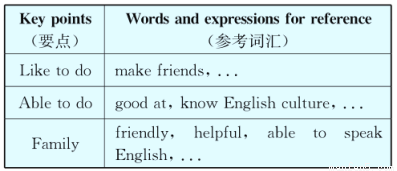题目内容
When I first moved to Melbourne, my new city seemed so big and unfriendly. One day, I decided to go to Royal Melbourne Hospital for a medical exam because I was worried that maybe I had got a serious illness.
Not having a car, I had to get to the hospital by bus. However, I mistakenly got on a bus that was going in the opposite(相反的) direction. Realizing that, I got off the bus quickly. I stood on the street and didn’t know what to do. I looked into the eyes of a woman who was walking past me. Surprisingly, instead of moving on, she stopped to ask if I was OK. I started to explain my situation to her, and tears started running down my face. The woman pointed to a bus stop across the street and told me that a bus would be there soon and it would take me to the hospital. Then she left.
When I was waiting for the bus at the bus stop, a car stopped beside me. It was the woman. She came back and offered to drive me to the hospital.
Such unexpected kindness from a stranger was a lovely gift for me. As I got out of the car at the hospital and turned to thank her, she smiled, said some nice words and told me to think positively, for all things were possible.
1.The underlined word “that” refers to the fact that ________.
A. the writer had no car
B. the writer was getting late
C. the writer got on the wrong bus
D. the writer lived far from the hospital
2.The woman gave the writer a ride ________ she told him the way to the hospital.
A. before B. after
C. during D. as soon as
3.What might the woman say to the writer when they were at the hospital?
A. Work hard and you will get what you want.
B. You did a wonderful job. Thank you!
C. Don’t worry. Everything will be OK.
D. Have a good time in Melbourne!



